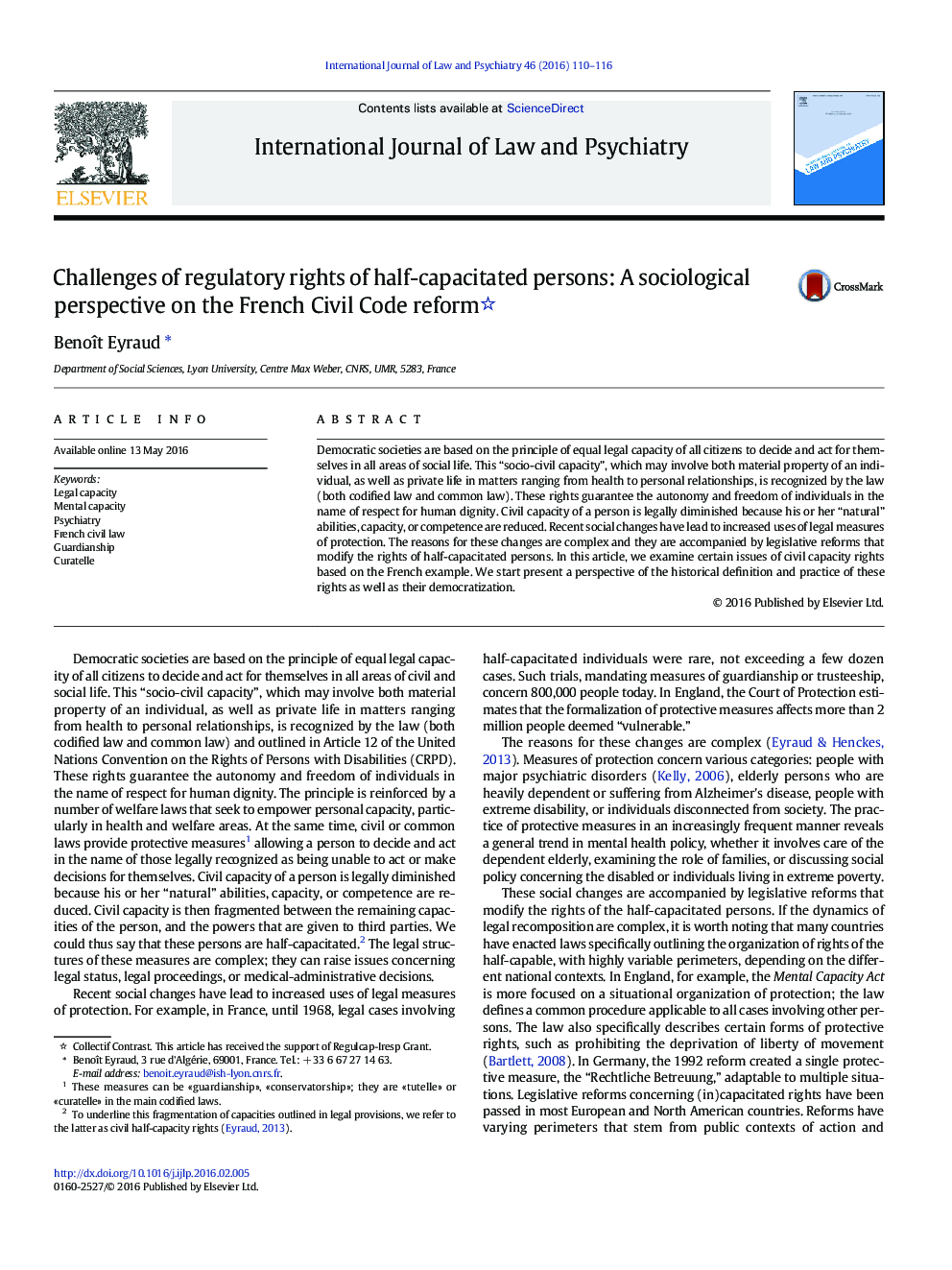| Article ID | Journal | Published Year | Pages | File Type |
|---|---|---|---|---|
| 6554615 | International Journal of Law and Psychiatry | 2016 | 7 Pages |
Abstract
Democratic societies are based on the principle of equal legal capacity of all citizens to decide and act for themselves in all areas of social life. This “socio-civil capacity”, which may involve both material property of an individual, as well as private life in matters ranging from health to personal relationships, is recognized by the law (both codified law and common law). These rights guarantee the autonomy and freedom of individuals in the name of respect for human dignity. Civil capacity of a person is legally diminished because his or her “natural” abilities, capacity, or competence are reduced. Recent social changes have lead to increased uses of legal measures of protection. The reasons for these changes are complex and they are accompanied by legislative reforms that modify the rights of half-capacitated persons. In this article, we examine certain issues of civil capacity rights based on the French example. We start present a perspective of the historical definition and practice of these rights as well as their democratization.
Related Topics
Health Sciences
Medicine and Dentistry
Forensic Medicine
Authors
Benoît Eyraud,
